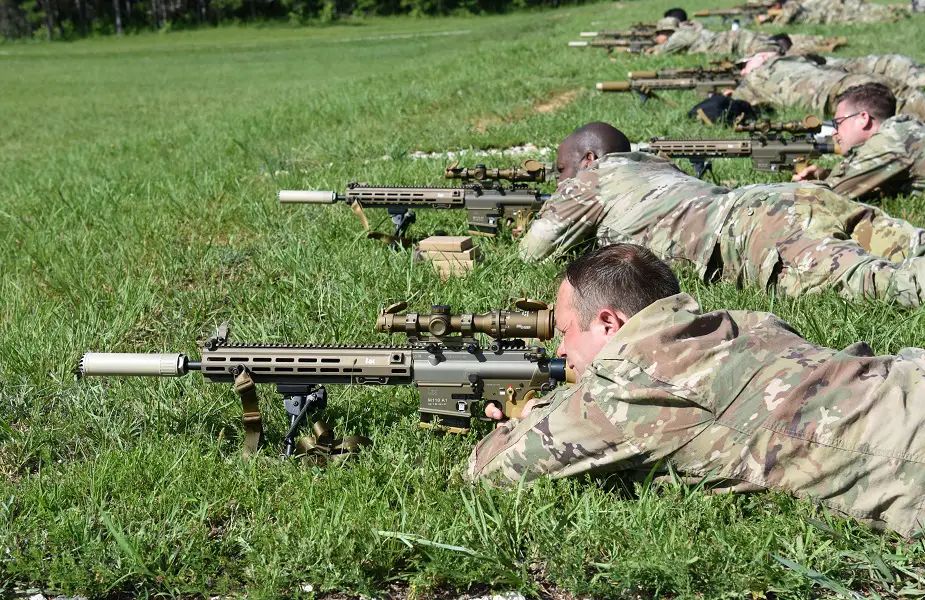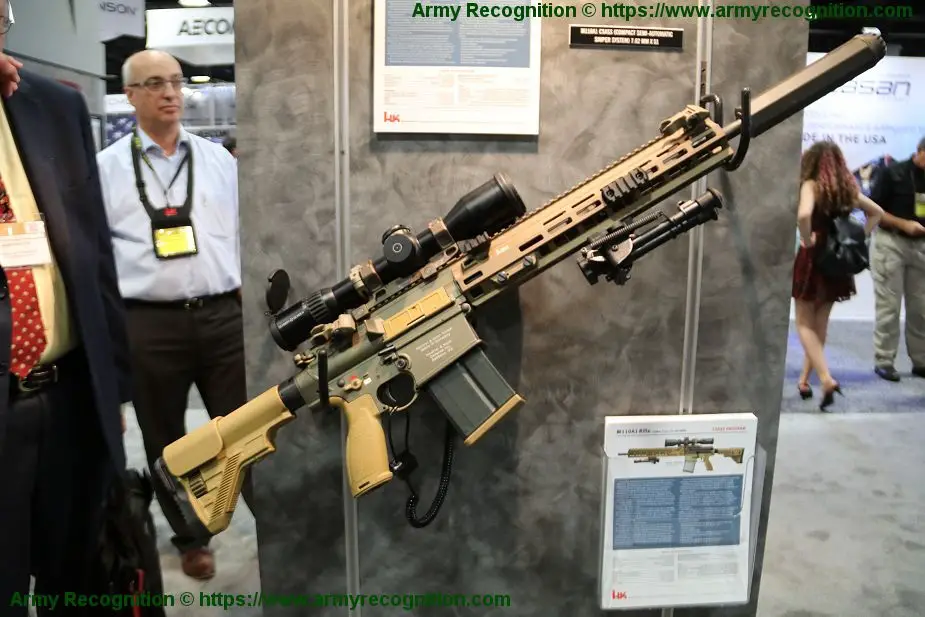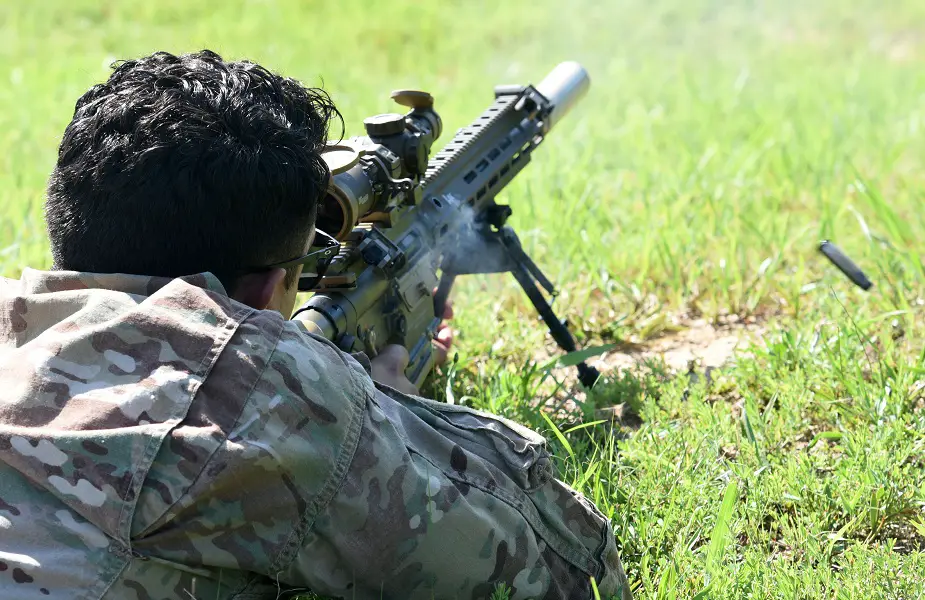Breaking news
Virginia and Kentucky Army National Guard Soldiers trained on new M110A1 Squad Designated Marksman Rifles.
Virginia and Kentucky Army National Guard Soldiers assigned to the Staunton-based 116th Infantry Brigade Combat Team trained on and fielded new M110A1 Squad Designated Marksman Rifles July 12-15, 2021, at Fort Pickett, Virginia. The event was hosted by the Virginia Army National Guard’s New Equipment Training / New Equipment Fielding facility.
Follow Army Recognition on Google News at this link

The M110A1, a 7.62-millimeter rifle, provides greater range and accuracy than the M4 rifle and is outfitted with a scope and sound suppressor (Picture source: US National Guard)
The new weapon is a 7.62-millimeter rifle which gives Soldiers greater range and accuracy than the standard M4 rifle. It makes use of an advanced targeting system and sound suppression and fills a distance gap between the M4 and larger-caliber sniper rifles.
Those advantages make infantry Soldiers more lethal and allows them to engage the enemy at a greater distance, according to 1st. Lt. Matthew Arnold, the NET/NEF state coordinator.
“The M110A1 SDMR allows our Soldiers to be able to reach targets out to 800 meters and beyond, depending on the Soldier's skill level,” said Arnold. “This basically allows the standard infantry squad to have more standoff between them and their target as well as increased time and space for maneuver as a result.”
A total of 30 Soldiers assigned to the Lynchburg-based 1st Battalion, 116th Infantry Regiment, the Winchester-based 3rd Battalion, 116th Infantry Regiment, the Portsmouth-based 2nd Battalion, 183rd Cavalry Regiment, the Fredericksburg-based 229th Brigade Engineer Battalion and the Kentucky National Guard’s 1st Battalion, 149th Infantry Regiment all participated in the training and fielding.
The event started with time in the classroom with civilian instructors from the U.S. Army Tank-automotive and Armaments Command, Materiel Fielding and Training Directorate, Soldier Lethality Team, learning the nuances and mechanics of the new weapon. From there, Soldiers took to the range to zero the rifles before firing at targets up to 800 meters away, taking turns behind the trigger and shot spotting. Command Sgt. Maj. Ronald Smith, the VNG command sergeant major, and Sgt. Maj. Latane I. Gilliam, the 116th IBCT operations sergeant major, observed the live-fire range and took a turn behind the new rifle.
Arnold explained that in the past, the higher-caliber and increased-range rifles were primarily used as weapons for snipers only, but this new rifle will be more widely-used.
“The main point is that this weapon, which was previously used as a sniper rifle, is now going to be in widespread use across our formation and the ways we use it will change depending on the situation,” said Arnold.

Heckler & Koch M110A1 Squad Designated Marksman Rifle (SDMR) at AUSA defense exhibition in Washington D.C., October 2017 (Picture source: Army Recognition)
The M110A1 fielding was the most recent in a series of small arms fielding across Virginia Army National Guard’s formations over the last several months, with a goal of bringing its Soldiers up to speed with their active duty Army counterparts. Other fieldings included the M3E1 Multi-purpose Anti-armor Anti-personnel Weapon System, a recoilless rifle which is replacing the AT-4, as well as the M17 pistol, replacing the M9, and the M320A1 grenade launcher, which replaces the M203.
“This was the last of the ‘small arms’ event that was rescheduled multiple times due to COVID and the Virginia guard is on par with the active duty with regards to weapons in the hands of Soldiers across our state,” said Arnold.
Those small arms fielding highlights the important role the NET/NEF facility plays in improving the Virginia Army National Guard’s warfighting capabilities.
“It's important to keep our Soldiers up to date with the latest weaponry because it can and will change how they fight,” said Arnold. “NET/NEF is the process that keeps us on par with the active component.”

The Soldiers zeroed the new rifles before firing at targets up to 800 yards away (Picture source: US National Guard)

























